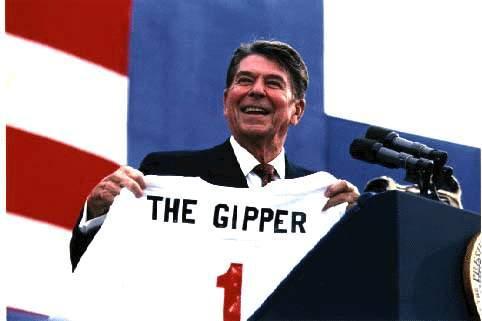Posted on October 31, 2005
Bubba's Big Break
Ex-prez demands huge tax giveaway
by
Daniel Clark
"I never thought I'd be so well cared for by the president and the Republicans in Congress. I almost sent them a thank you note for my tax cut ,until I realized that the rest of you were paying the bill for it." Those were the words of Bill Clinton, at last year's Democratic National Convention. While bragging about his recently accumulated wealth (as he always seems to be doing these days), the former president lectured that Republican tax cuts were putting more money in his pocket at the expense of the children, the poor, and the environment, as usual.

These remarks of his are typical of the Democrats' zero-sum approach to tax policy. If you believe that people's incomes are "distributed" as Clinton and his party profess to, then the distribution of more money to one person must mean that less is being distributed to someone else. Hence, tax cuts for the "super-rich" -- a group to which Clinton now proudly belongs -- must be paid for by others.
How cruel it must be, then, for Clinton to burden his fellow Arkansans with the $3.5 million tax break that he has secured for the William J. Clinton Presidential Foundation, which built and maintains the Clinton Library in Little Rock. After all, Arkansas is one of the poorest states in the nation, and the ex-president, as he exhaustively tells us, has more money than he could ever know what to do with. Can the man who coined the phrase "I feel your pain" really be so callous?

Mind you, the Clinton Library is legally entitled to the tax break, under the Arkansas Enterprise Zone Act of 1993. That law provides tax refunds for certain "legitimate business enterprises" -- a term that includes non-profits like the Clinton Foundation, according to last week's ruling by the state Supreme Court. (The law was amended to exclude non-profits in 2003, but the foundation had already applied for the tax breaks the previous year.) The question is why Clinton, who regularly condemns his own federal income tax cut, would voluntarily compound that supposed injustice by having his lawyers fight for an additional $3.5 million in tax relief from the state.
Clinton's lawyers had successfully argued that the library is a "legitimate business enterprise," on the basis that it generates tourism and therefore creates jobs in the area. In addition, of course, there are the people being employed by the library itself, which houses a banquet hall, a restaurant and a gift shop. In other words, a tax cut "for the rich" is helping to expand the economy, and therefore create economic opportunities for others. Some might even argue that the state would more than recover its lost revenue, from the new sources of income and sales taxes that the library generates.
But would Bill Clinton make such an argument? Not if he's being truthful when he criticizes cuts in federal income tax rates. Federal tax revenues have increased dramatically since the Bush rate cuts have taken effect. Yet Clinton and his fellow Democrats take the position that a reduction in income tax rates must result in a directly proportional reduction in revenues to the government. That's why they always say tax cuts must be paid for, by some victimized group or other.

Likewise, a booming economy spurred by Ronald Reagan's rate cuts nearly doubled federal revenues by the end of his presidency, but when Clinton ran for president in 1992, he lampooned the Eighties as the "decade of greed," and falsely blamed the cuts for high deficits. (Ironically, it was Reagan who championed the concept of enterprise zones, and first signed them into law, so Clinton has him to thank for his recent windfall.)
There's no theoretical reason why things should be any different at the state than the federal level. If Bill Clinton is getting a $3.5 million tax break for his library, he must believe that somebody else has got to make up for the shortfall. It should go without saying that this did not stop him from taking the money. But what about the children? What about the poor? What about the environment? Suddenly, these stereotypical victims of "greed" don't register any sympathy with the liberal Mr. Lipnibble.
From what we know about Bill Clinton, this may sound like asking a lot, but he really ought to make up his mind. Either tax cuts need to be paid for, or they don't. If he really believes the zero-sum theory, and believes it's the government's job to distribute money, then he must, in his own mind, be no better than a thief. In Democrat lingo, he's the recipient of a huge tax giveaway to the super-rich, who are made even richer as the poor are made poorer.
If, on the other hand, he understands the economic utility of tax cuts, then that means that when he hiked taxes in 1993, he cut many Americans' take-home pay for no good reason. His talk of a "shared sacrifice" and of making the rich "contribute" their "fair share" was then just a cynical, populist ploy.

We'll never know for sure which of these is true, first of all because nobody will ask him, and second because we couldn't trust his answer if anyone did. But that doesn't mean that this episode illustrates nothing about him. It's just that one must look beyond the inconsistencies in Clinton's behavior, and notice what about it has been consistent. The common denominator is that, in the end, Bill Clinton gets his tax relief. He can insist all he wants that he doesn't "need" his federal income tax cut, but he's not about to give it back, any more than he's about to miss the opportunity to claim the enterprise zone break for his library.
Even when income tax rates are raised as he says they should be, he'll go to extraordinary measures to get out of paying them, while leaving all the honest saps to pick up the tab. Once, he even took a tax deduction for donating his used underpants. (To whom? Science?) Incredibly, he valued them at $2 per pair. How in the world did he arrive at that figure? Were these ermine underpants? Or was he considering their potential resale value, if they were auctioned off to the Washington press corps? Helen Thomas might even bid two and a quarter. What makes this financial equivalent of dumpster diving all the more disgraceful is that President Clinton was siccing the IRS on his enemies, while he and Hillary were themselves submitting tax returns that should have raised more red flags than an International ANSWER rally.
The bottom line is that when Bill Clinton says he wants money, he wants money. And when he says he doesn't want money, he wants money. It's not just money, though. He could just as easily be talking about food, bimbos, power, attention, or anything else on which he's been known to surfeit himself. When he wants something, his getting it is the only thing that matters, no matter how hypocritical it may be.
This latest illustration of that behavior calls to mind something that was once said about Clinton by Jesse Jackson, which nevertheless appears to be true: "There is nothing this man won't do. He is immune to shame. Move past all the nice posturing and get really down in there in him, you find absolutely nothing -- nothing but an appetite."
The Shinbone: The Frontier of the Free Press
Mailbag . Issue Index . Politimals